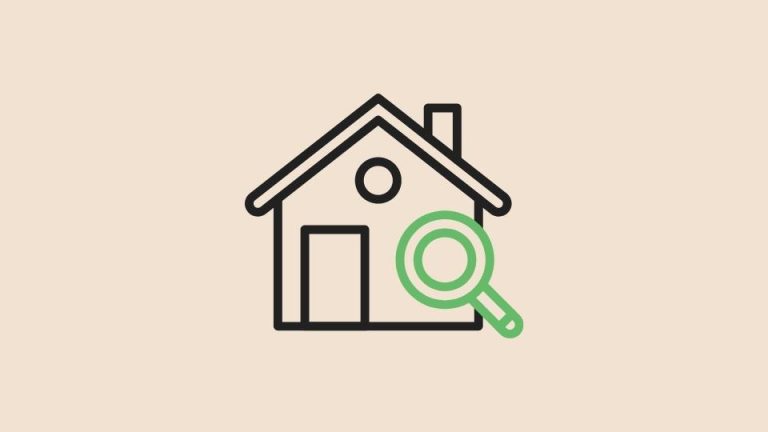How to Report Bad Landlords and Deal with Poor Property Management in 2023

Dealing with an unresponsive or neglectful landlord can be one of the most frustrating experiences for tenants. From leaking ceilings to inadequate heating, a range of problems can arise if your property management isn’t up to the mark. So, what do you do when faced with such issues? How do you report bad landlords or address poor property management?
In this comprehensive guide, we’ll delve into how to handle and report neglectful landlords, and provide advice on navigating the sometimes-tricky waters of property management disputes.
1. Document Everything
Before taking any formal steps, it’s crucial to document everything. Take photographs of the issues, record dates, save emails or texts exchanged with the landlord or property manager, and maintain a detailed log of incidents and communication. This will not only help validate your claims but also serve as evidence should any legal action be required later. As per HUD, accurate records can be instrumental in resolving tenant-landlord disputes.
2. Understand Your Tenant Rights
Your rights as a tenant vary based on your city, state, or country, but there are general standards of decency and habitability that all landlords should meet. Familiarize yourself with your local tenant rights. Websites such as the National Landlords Association or the U.S. Department of Housing and Urban Development can provide valuable insights.
3. Initiate a Conversation
Before resorting to formal complaints, it’s often beneficial to speak with your landlord or property management company. Open communication can sometimes resolve the issues without further conflict. Send a detailed, polite, and concise letter or email, outlining your concerns and requesting action.
4. Report to Local Authorities
If your landlord is negligent, especially concerning safety and health issues, it’s crucial to report them to local authorities. Depending on your city or state, there might be specific departments or agencies designated to handle tenant complaints.
For instance, if you’re dealing with negligence in New York City, you can file a complaint with the New York City Department of Housing Preservation and Development (HPD). Always research and use the appropriate channels for your specific location.
5. Seek Mediation or Legal Advice
When direct communication fails, consider mediation. Many cities offer mediation services to help landlords and tenants resolve their disputes without resorting to legal action.
If mediation doesn’t lead to a resolution, or if the issues are severe, consider seeking legal advice. Many organizations offer free legal advice for tenants, and it might be worth exploring your options.
6. Review Your Lease Agreement
Sometimes, the answer lies in the fine print. Review your lease agreement to understand the responsibilities of both parties. If the landlord is in breach of any terms, this can strengthen your position.
7. Engage with Tenant Associations
Joining or forming a tenant association can offer support and guidance. Such associations often have experience dealing with similar issues and can provide resources or collective bargaining power.
8. Online Platforms and Reviews
Another way to highlight issues with bad landlords or poor property management is by leaving detailed reviews on platforms like Yelp, Google, or specialized rental review sites. This not only warns potential tenants but might also push landlords to rectify issues to protect their reputation.
Reporting Landlord Negligence in Your City
The specifics of reporting landlord negligence vary based on your location. However, a general approach involves:
- Local Housing Departments: Many cities have local housing departments that handle complaints about rental property conditions.
- Legal Avenues: Depending on the severity, issues like uninhabitable conditions can be grounds for legal action. Consult a local attorney who specializes in tenant-landlord laws.
- Public Health Departments: If your concerns involve health risks, such as mold or pest infestations, the local public health department may intervene.
Laws and Regulations in New York and California
New York State’s Tenant Protection Laws
In 2019, New York State passed the Housing Stability and Tenant Protection Act, bringing about significant reforms to protect renters. This legislation:
- Limits Security Deposits: A landlord can only charge up to one month’s rent as a security deposit.
- Protects Tenants against Retaliation: Landlords can’t evict or penalize tenants for making a legitimate complaint about living conditions.
- Ensures Notice for Rent Increases and Non-Renewals: If a landlord intends to increase rent by 5% or more or not renew a lease, they must give ample notice, depending on the tenant’s length of stay.
Reporting Negligent Landlords in New York State
- Division of Housing and Community Renewal (DHCR): The DHCR oversees the public and private rental sectors in New York State. If a tenant feels their rights are being violated, they can file a complaint with the DHCR, which will investigate and take appropriate action.
- 311 Service in NYC: For those in New York City, 311 is a vital service for reporting issues with housing conditions. By simply dialing “311”, residents can report problems directly to the city.
- New York Attorney General’s Office: The Tenant’s Rights Guide from the Attorney General’s Office provides a comprehensive overview of the rights and responsibilities of tenants, including the steps to take when dealing with negligent landlords.
Seeking Legal Help in New York
The state provides numerous resources for tenants needing legal assistance:
- Legal Aid Society: Organizations like the Legal Aid Society offer free legal services to qualifying individuals, helping navigate the complexities of tenant-landlord disputes.
- Metropolitan Council on Housing: This organization not only offers advice but also organizes tenant actions and advocates for renters’ rights at both the city and state levels.
Tenant Associations in New York
Tenant associations are active and powerful in New York, especially in areas with large residential complexes. Joining or creating an association in your building or neighbourhood can be an effective way to address and spotlight issues, negotiate with landlords collectively, and share resources.
New York State, with its vast rental market, understands the importance of protecting its tenants. With its robust laws and active community organizations, residents have multiple avenues to ensure they live in safe, fair conditions. If faced with landlord negligence or poor property management, New Yorkers are encouraged to utilize the resources available to them, stand up for their rights, and seek appropriate remedies.
Note: This article provides general advice based on the laws and regulations up until the knowledge cutoff in September 2021. For the most recent legal changes or updates, always consult the official New York State resources or legal professionals specializing in New York tenant-landlord law.
California State’s Tenant Protection Laws
1. California Statewide Rent Control (AB 1482): Effective since January 1, 2020, the Tenant Protection Act of 2019 limits the amount landlords can increase rent for most residential properties built before January 1, 2005. Rent hikes are restricted to 5% plus the local rate of inflation or 10%, whichever is lower.
2. Just Cause Evictions: The same act, AB 1482, also mandates “just cause” protections, meaning landlords can’t evict tenants without a valid reason.
3. California’s Warranty of Habitability: Landlords are obligated to provide a livable premise. This includes effective waterproofing, plumbing, gas, electrical, and more. If a landlord fails to do so, the tenant has rights, including the option to withhold rent or “repair and deduct.”
Reporting Negligent Landlords in California
1. Department of Consumer Affairs: The California Department of Consumer Affairs is an excellent resource for tenants, providing guides and details about tenant and landlord rights and responsibilities.
2. Local Housing Departments: Many cities in California, especially larger ones like Los Angeles or San Francisco, have their local housing departments or rent control boards. These boards can help resolve disputes and are crucial for reporting issues like rent overcharges or unjust evictions.
3. Health and Safety Violations: For severe violations, tenants can contact their local health department. In dire cases, the city can red-tag a property, deeming it uninhabitable.
Seeking Legal Help in California
1. California’s Legal Aid Societies: There are numerous legal aid societies and non-profit organizations, such as California Rural Legal Assistance and Legal Aid Foundation of Los Angeles, that offer legal advice and representation to tenants.
2. Tenants Together: As California’s only statewide renters’ rights organization, Tenants Together offers counseling, advice, and resources for renters facing issues with their landlords.
Tenant Associations in California
Engaging with local tenant associations can provide support and resources for those dealing with property management issues. Cities with high rental populations, like San Francisco, Oakland, and Los Angeles, have numerous active tenant unions and organizations that help renters organize, protest, and advocate for their rights.
California’s diverse housing market, spanning bustling urban centers to quieter rural areas, requires robust tenant protections. With the laws in place and the variety of resources available, renters in the Golden State are well-equipped to address any issues of landlord negligence or poor property management. As a Californian tenant, understanding your rights and using available resources can help ensure you’re treated fairly and live in safe, decent conditions.
Note: This article provides general advice based on the laws and regulations up until the knowledge cutoff in September 2021. For the most recent legal changes or updates, always consult the official California State resources or legal professionals specializing in California tenant-landlord law.
Conclusion
Living under the shadow of a neglectful landlord or poor property management can be a significant source of stress. But by understanding your rights, documenting evidence, and using available resources, you can improve your living situation. Remember, as a tenant, you have the right to safe, decent, and habitable housing. Don’t be afraid to stand up for your rights and seek the appropriate channels for resolution.
Note: This article offers general advice, and specifics can vary based on individual situations and jurisdictions. Always consult with local experts or legal professionals when dealing with property disputes.






